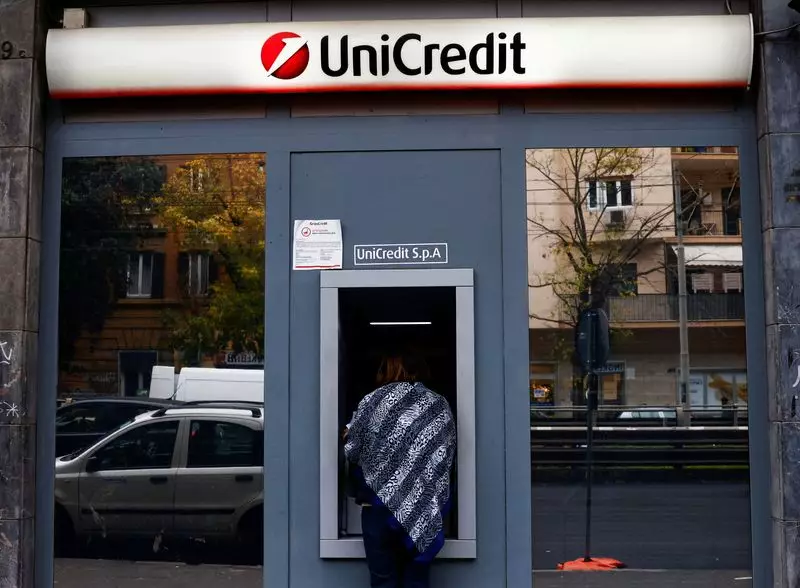The recent buyout offer by UniCredit for Banco BPM stands as a significant moment for the Italian banking sector, illuminating the underlying dynamics of mergers and acquisitions within this crucial industry. The offer, filed with Italy’s market regulator, has sent ripples across financial markets and raised important questions regarding valuation, investor sentiment, and future prospects for both banks involved.
UniCredit’s proposal of a 10-billion-euro ($10.5 billion) all-share offer, originally announced on November 25, has been characterized by CEO Andrea Orcel as adequate and tailored to create shareholder value. His confidence underscores a strategic approach that is not merely about immediate financial gain but rather about ensuring long-term benefits for investors. Orcel’s assertion that any agreement must surpass the return of UniCredit’s own share buyback programs emphasizes a careful and metrics-driven methodology that is crucial in today’s volatile market.
The buyout offer, which translates to 175 newly issued shares for every 1,000 BPM shares, positions Banco BPM shareholders at a pivotal juncture. The strategy not only reflects a 15% premium based on pre-bid valuations but also allows for room to maneuver if necessary, portraying a willingness to negotiate based on market behavior and investor appetite.
Interestingly, Banco BPM shares closed at 7.846 euros on the day of the offer, significantly higher than UniCredit’s proposed exchange rate of 6.657 euros. This discrepancy indicates investor skepticism about the adequacy of UniCredit’s initial valuation, highlighting the market’s expectations for potentially more lucrative offers or incentives. The discrepancy in share prices also hints at a bullish sentiment that expects either improvement upon the existing offer or more strategic moves that could favor Banco BPM stakeholders in the coming weeks.
Orcel’s emphasis on BPM investors benefiting more by retaining UniCredit shares reflects deeper insights into the merger’s potential. The strategic advantages presented by UniCredit—such as higher resiliency and diversification—are designed to demonstrate that the merged entity would yield better long-term prospects than the standalone operation of Banco BPM.
The push for this acquisition stems from a broader trend of consolidation in the Italian banking sector. The competitive landscape has been forcing traditional banks to adapt, and Orcel’s expert knowledge gained from years of navigating mergers puts him in a unique position to evaluate and execute this strategy. Despite a history where he resisted engaging with Banco BPM due to inflated share prices, the time—marked by accelerated domestic consolidation—has compelled a strategy shift.
Orcel articulated a clear vision: any merger must not only align with strategic goals but also prove to surpass core financial metrics. This calculated approach may bolster investor confidence, but it also places immense pressure on UniCredit to justify its valuation and to plan for cash-enhanced offers, leading to a more robust negotiating position.
Another critical component of this merger discussion is the involvement of Credit Agricole, the largest shareholder in Banco BPM. The invitation from UniCredit for Credit Agricole to engage in negotiations signals an awareness of the broader ecosystem at play, emphasizing the significance of alliances and partnerships in navigating potential M&A challenges. Their vested interest in enhancing a commercial partnership rather than outright opposition reflects a growing trend of interdependence among major banking players seeking strategic advantages.
With Credit Agricole also applying to secure a larger stake in BPM through derivatives, the implications for market dynamics become increasingly complex. Stakeholders must now consider the ramifications of these developments not only on stock valuations but on merger negotiations themselves, which could potentially swing the deal either way.
As UniCredit moves forward with its buyout bid for Banco BPM, the intricate dance of stakeholder interests, market reactions, and strategic imperatives will be pivotal. The Italian banking industry is witnessing a critical transformation, and Orcel’s leadership will be tested in the forthcoming weeks as he aims to align interests and secure the best possible outcome. Balancing immediate shareholder concerns with long-term strategic goals will be crucial in realizing a merger that promises resilience and enhanced value amidst a challenging economic landscape. The path forward for UniCredit and Banco BPM will undoubtedly be one of careful negotiation, stakeholder engagement, and a vigilant eye on market trends.

